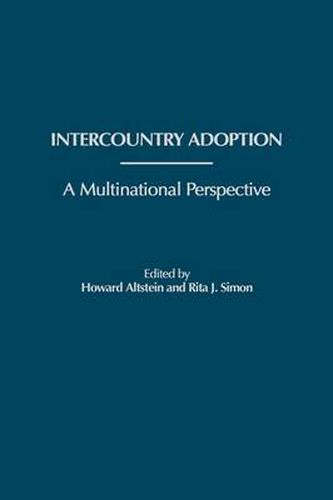This volume describes the experiences of foreign born adoptees and their families. Countries discussed include the United States, Canada, Norway, West Germany, Denmark, the Netherlands and Israel. Agency sponsored inter-country adoption (ICA) first began with the end of World War II when European orphans were adopted by American families. This book provides a brief history of inter-country adoption; specifies the rules and procedures employed in the various countries; and evaluates the pros and cons and successes and failures in the seven nations. For each country the book provides information on the number of transracial and intercountry adoptions since the end of World War II (or 1960). It discusses each country’s formal statutes on transracial and intercountry adoption and describes the organizations and/or social movements advocating such adoptions as well as those opposing them. The editors conclude with a summary, drawn from the case studies, which assesses the successes and failures of the adoption policies and experiences. Compiled by leading scholars in the adoption field, this volume is designed for use by social workers, adoption agencies, sociologists and psychologists.





